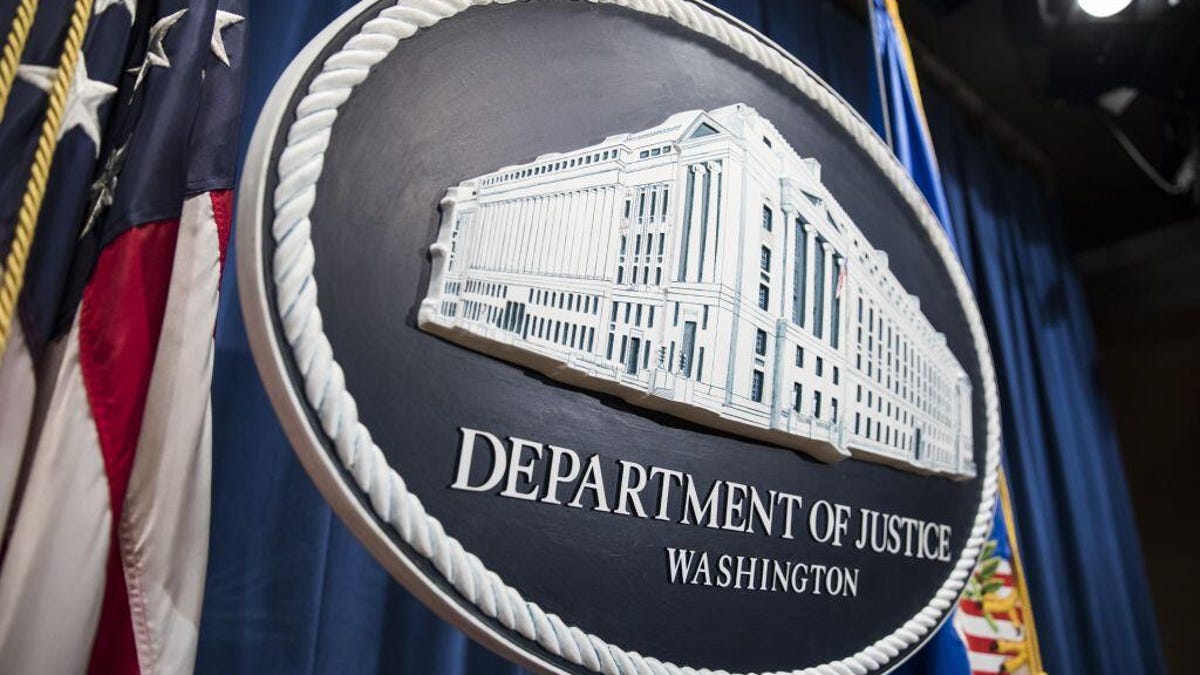Justice Department proposes limits to online platforms' legal protections
This comes in the wake of President Donald Trump's executive order targeting social media sites.

The Justice Department's proposal was announced Wednesday.
The US Justice Department has proposed rolling back legal protections that online platforms have had since the 1990s and trying to make sites more vigilant about policing content. This follows President Donald Trump's executive order late last month targeting social media companies.
The proposal was announced Wednesday, after being reported earlier by The Wall Street Journal. The president's executive order, which came in late May, called for a government review into Section 230 of the 1996 Communications Decency Act, which protects online companies from liability for content posted by users.
The Justice Department's proposed legislative changes, which still need to be adopted by Congress, would strip tech firms of civil immunity in a range of circumstances. It would remove legal protections when, for example, platforms facilitate things like selling illicit drugs, cyberstalking, human trafficking, child sexual exploitation and terrorism.
The reforms would ensure online platforms address "illegal and exploitative content while continuing to preserve a vibrant, open, and competitive internet," according to Attorney General William Barr. "Law enforcement cannot delegate our obligations to protect the safety of the American people purely to the judgment of profit-seeking private firms," Barr said in a statement. "We must shape the incentives for companies to create a safer environment."
Trump's executive order followed Twitter's decision in May to slap labels on two tweets from the president about mail-in voting, saying they contained "potentially misleading information." Within days, Twitter veiled a tweet from Trump about protests in Minneapolis, putting it behind a label that stated the tweet violated the company's rules against "glorifying violence."
Twitter's actions appear to have been a tipping point in a long-fraught relationship between conservatives and social media companies. Conservatives have said their speech gets censored by Twitter, Facebook and other social media sites, though the companies have repeatedly denied that they engage in such censorship. And Trump himself used Twitter to build his political base and continues to use it as one of his main modes of communication. He currently has more than 82 million followers.
Separately, liberals have criticized how social media companies moderate content, pointing to concerns about disinformation and hate speech.
The DOJ proposal would erode legal protections given to social media companies under the Communications Decency Act, which was passed in 1996, according to the Journal. Section 230 is considered the most important law protecting speech online. The provision essentially protects companies that host user-created content from lawsuits over posts on their services.
The law shields not only internet service providers, like AT&T, Comcast and Verizon, but also social media platforms, like Facebook and Twitter. It also provides sweeping protections that let social media platforms choose how they restrict content and what content they restrict.
The DOJ proposal calls for extensive restrictions on content moderation, in order to reduce online content that's harmful for children while at the same time "limiting a platform's ability to remove content arbitrarily."
Earlier this month, the Center for Democracy and Technology sued Trump, alleging that his executive order violates the First Amendment and is a retaliatory move against Twitter.
The DOJ didn't immediately respond to a request for comment.



